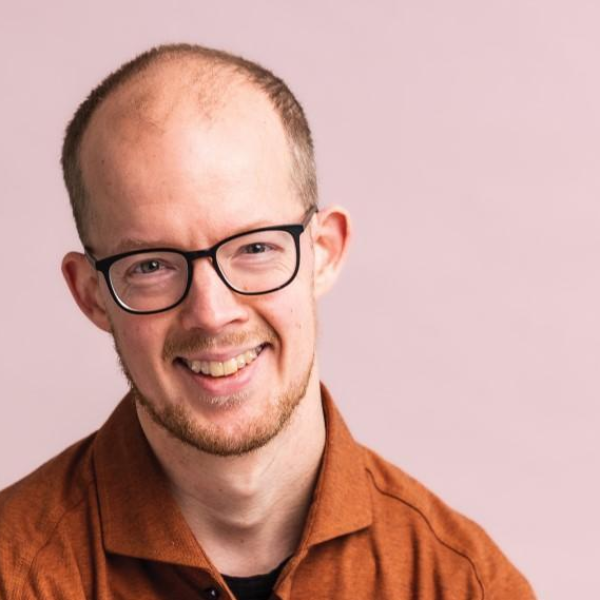Remco Egelman
Employee portrait

'Only an average nose will qualify you'
Remco Egelman (36) conducts odour research at Witteveen+Bos. Half the time he is outside taking measurements; the rest of the time he is analysing samples and working on automation. He is also head of Materials and Equipment Management.
Odour panel
‘During my environmental science degree, we were presented with a case study involving Farmer Bert. An adviser from Witteveen+Bos visited and talked to us about odour, odour standards, permits and measurements. It was all new to me; at first, I couldn’t imagine what it was like. Did you know, for example, that smell can’t be measured with equipment? In the three odour labs in the Netherlands – including Witteveen+Bos’s – odour panels are used. I wanted to work in one of those panels. It seemed like a pretty relaxed job, and I was curious to know how it all worked. But first my nose had to be tested, because only an average nose will qualify you for the panel. Strong noses disadvantage companies; weak noses disadvantage society. Luckily, I had an average nose.’
Relocations
‘What it involved? Smelling! Specifically, smelling air samples stored by Witteveen+Bos in special bags. There are three buttons: ‘Certain’, ‘Suspect’ and ‘Guess’. In between smelling, I did my homework or played a game. After a while, I was also asked to do other jobs – for example, for the acoustics department. Following various relocations within Witteveen+Bos, I ultimately ended up back at the odour lab after graduating. I’m now one of the more experienced advisers. I take on-site measurements of odours and emissions that are subsequently analysed by our panel at the lab. Besides that, I work on automating processes and together with a colleague I’m responsible for our equipment. Our instruments are audited every year – everything has to be in perfect condition.’
Sensitive nose
‘One of the things I’m interested in is big data – still relatively new in our profession. Individual measurements can answer whether our clients are currently meeting odour standards, but we’ve been visiting some places for more than a decade: if we can combine data, we can discover trends, correlations and connections, or make predictions. This can be very valuable both for the client and for us. I like the two sides to our profession: on the one hand, we’re trying to work smarter and more efficiently, but on the other we still have to get up on the roof and fill a bag with air for a panel to judge. Did you know that humans can detect the substance that gives a rose its characteristic scent at a concentration of only 5 parts per billion? A human’s nose is very sensitive; you can’t easily replace it with technology.’